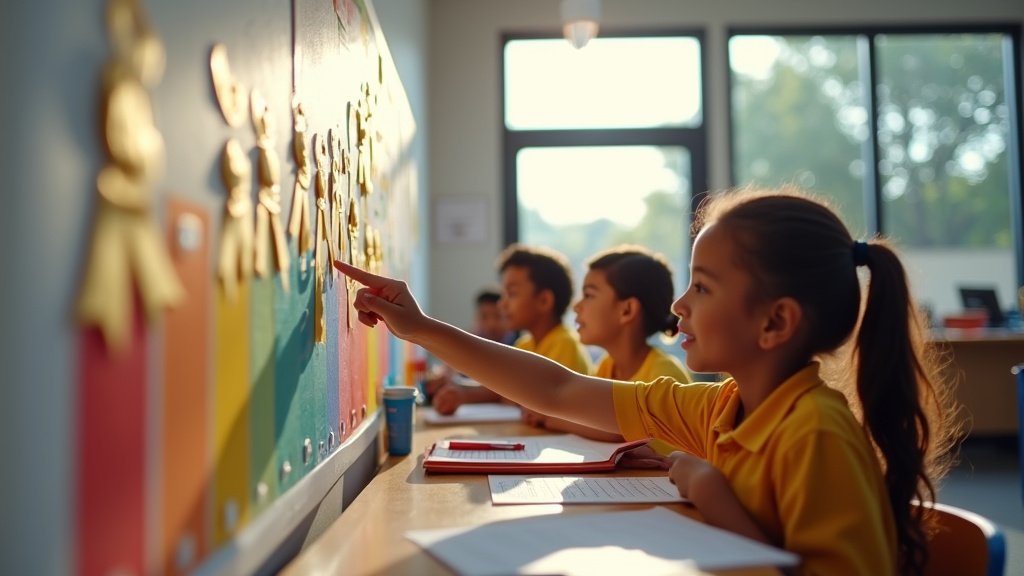Texas School Voucher Bill Hits Senate Roadblock
A controversial legislative effort to establish an education savings account (ESA) program in Texas faced significant hurdles this week, encountering stiff opposition and triggering extensive debate during a crucial hearing before the Senate Education Committee. House Bill 123, which proposes the creation of the ESA program, saw its path forward complicated following its passage from the House committee on April 22. Just two days later, on April 24, 2025, the bill was subjected to intense scrutiny and pushback in the Senate, culminating in the postponement of a final committee vote.
HB 123: Overview and House Passage
HB 123 aims to introduce an education savings account program designed to allow eligible students to use state funds allocated for their education at approved private schools or for other qualified educational expenses, such as tutoring, curriculum, and therapy. Proponents argue that such a program enhances parental choice and allows families to select the educational environment best suited for their children, particularly those dissatisfied with their assigned public schools. The bill is a key priority for Governor Greg Abbott and has garnered substantial support among certain segments of the Republican caucus and advocacy groups championing school choice initiatives.
Following deliberation and debate, the bill successfully cleared the House committee on April 22. This passage marked a significant step for the legislation, signaling its potential viability and moving it closer to a floor vote in the House. However, the legislative process is multi-chambered, and the journey through the Senate presents its own distinct set of challenges and political dynamics.
Senate Education Committee Hearing: April 24, 2025
The hearing on April 24 before the Senate Education Committee became a focal point of the ongoing statewide debate over school choice and its potential implications for public education. The session, which drew numerous stakeholders representing diverse viewpoints, quickly devolved into a lengthy and impassioned discussion regarding the merits and potential drawbacks of HB 123. Testimonies were heard from parents, educators, administrators, and advocates on both sides of the issue.
Opponents of the bill articulated grave concerns that establishing an ESA program could divert essential funding away from the state’s already strained public school system. They argued that this diversion could particularly impact rural school districts, which often serve as the central community institution and may lack viable private school alternatives. These districts rely heavily on state funding, and any reduction, perceived or actual, could exacerbate existing resource disparities and negatively affect the quality of education provided to the majority of Texas students who attend public schools.
Senator Jane Doe Raises Critical Concerns
A leading voice in the opposition during the hearing was Senator Jane Doe. Senator Doe articulated significant concerns regarding the potential fiscal impact of HB 123 on the state budget and, more specifically, on the financial stability of rural school districts. She questioned the long-term cost projections of the proposed ESA program and the mechanisms in place to ensure fiscal accountability and prevent potential waste or fraud within the private sector entities accepting public funds through the accounts.
Senator Doe emphasized that while the concept of parental choice holds merit, it should not come at the expense of undermining the state’s foundational public education system, which serves the vast majority of Texas children. She highlighted the unique challenges faced by rural communities, where local schools are often the primary, if not sole, educational option and play a vital role in the local economy and social fabric. Introducing an ESA program, she argued, could weaken these critical institutions without providing a meaningful alternative for local families.
In an attempt to mitigate some of these concerns, Senator Doe proposed several amendments to HB 123. These proposed changes were primarily aimed at restricting the eligibility criteria for accessing ESA funds. The objective behind these amendments was seemingly to limit the potential pool of participants, thereby potentially reducing the overall cost to the state and minimizing the perceived negative impact on public school funding, particularly for districts in less populated areas. The specific details of these proposed amendments and their potential effects on the bill’s scope were subjects of further discussion within the committee.
Postponement of Vote and Implications
The intensity of the debate and the depth of the concerns raised by Senator Doe and other committee members ultimately led to the postponement of a final vote on HB 123 by the Senate Education Committee. This decision, while not necessarily signaling the bill’s demise, indicates that the legislation faces significant challenges in securing sufficient support to advance out of the committee in its current form. It suggests that there is not yet a consensus among committee members and that substantial disagreements persist regarding the program’s structure, funding mechanisms, and potential consequences.
Postponing the vote allows for further negotiation, potential redrafting of certain provisions, or attempts by proponents to sway undecided members. However, it also provides opponents with additional time to marshal their arguments and pressure lawmakers. The delay highlights the contentious nature of school voucher and ESA programs in Texas, where the debate often pits advocates for individual educational freedom against defenders of the public education system.
The Broader School Choice Debate in Texas
HB 123 is part of a larger, recurring legislative push in Texas to implement school choice mechanisms. Proponents, including Governor Abbott, frame these initiatives as empowering parents, fostering competition among schools (both public and private), and ultimately leading to improved educational outcomes for all students. They often point to successful ESA or voucher programs in other states as models.
Conversely, opponents, including teacher unions, parent groups primarily focused on public schools, and many rural legislators, argue that such programs lack adequate accountability compared to public schools, could lead to segregation, and primarily benefit affluent families who can already afford private school tuition, while leaving public schools underfunded and tasked with educating the majority of students, including those with the most complex needs. They contend that state funds should be focused exclusively on strengthening and improving the public education system accessible to all Texans.
Path Forward for HB 123
The postponement of the Senate Education Committee vote means that the fate of HB 123 remains uncertain. The bill must still gain approval from this committee before it can be considered by the full Senate. The opposition articulated during the hearing, particularly Senator Doe’s focus on rural impact and budget concerns alongside proposed eligibility amendments, indicates that the bill’s path will likely require significant negotiation or compromise. Despite strong backing from the Governor and proponents emphasizing parental choice, the legislative calendar and the depth of opposition suggest that HB 123 faces an uphill battle to become law during the current legislative session. All eyes will remain on the Senate Education Committee as they determine the next steps for this highly debated piece of legislation.






